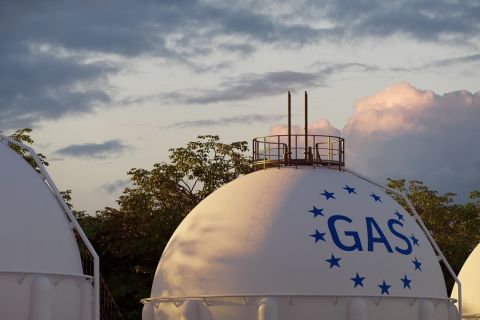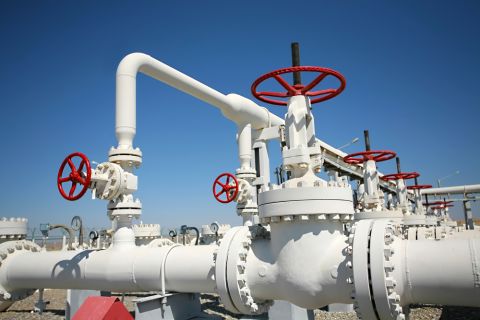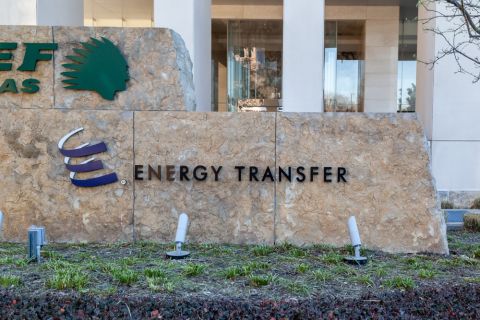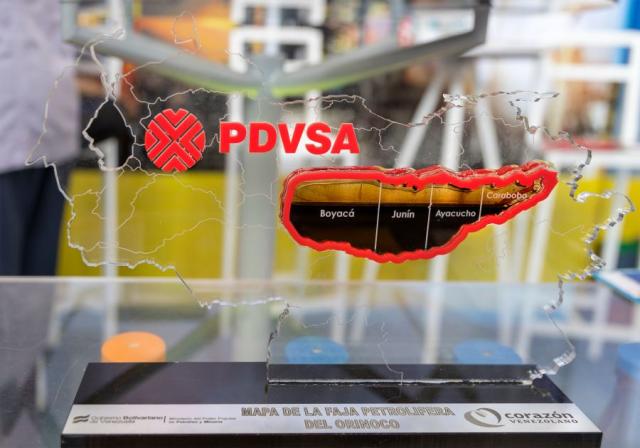
Venezuela’s Orinoco heavy oil belt, also known as the Faja, is home to around 1.4 Tbbl of original oil in place. (Source: Shutterstock.com)
Efforts by Chevron Corp. to boost oil production in Venezuela this year will see the U.S. oil giant generate more revenues to pay outstanding debt in the OPEC country.
Just how much revenue Chevron will generate will depend on the ultimate price it gets for its heavy oil production after upgrades, transport and other discounts are applied to get the oil to market.
In late January, Chevron chairman and CEO Mike Wirth said the company’s four joint ventures (JV) in Venezuela were producing around 90,000 bb/d, up from around 50,000 bbl/d in November 2022 when the company was still prohibited by the U.S. Office of Assets Control (OFAC) from engaging in efforts to expand production.
RELATED
Chevron Says Venezuela Production Up Nearly 80%
Column: Much Ado About Venezuelan Sanctions
Now with OFAC’s approval, the Chevron JVs will continue to encounter headwinds as they try to reach a prior 200,000 bbl/d potential. This has been a largely evasive pursuit since early 2019 when the U.S. initially imposed sanctions on Venezuela’s oil sector to promote “free and fair” elections in 2024 and a potential democratic change to a leader that is more to the U.S.’ liking.
Regardless of the price point, Chevron’s JVs will generate more income for the company, but not necessarily to the benefit of the government of President Nicolas Maduro.
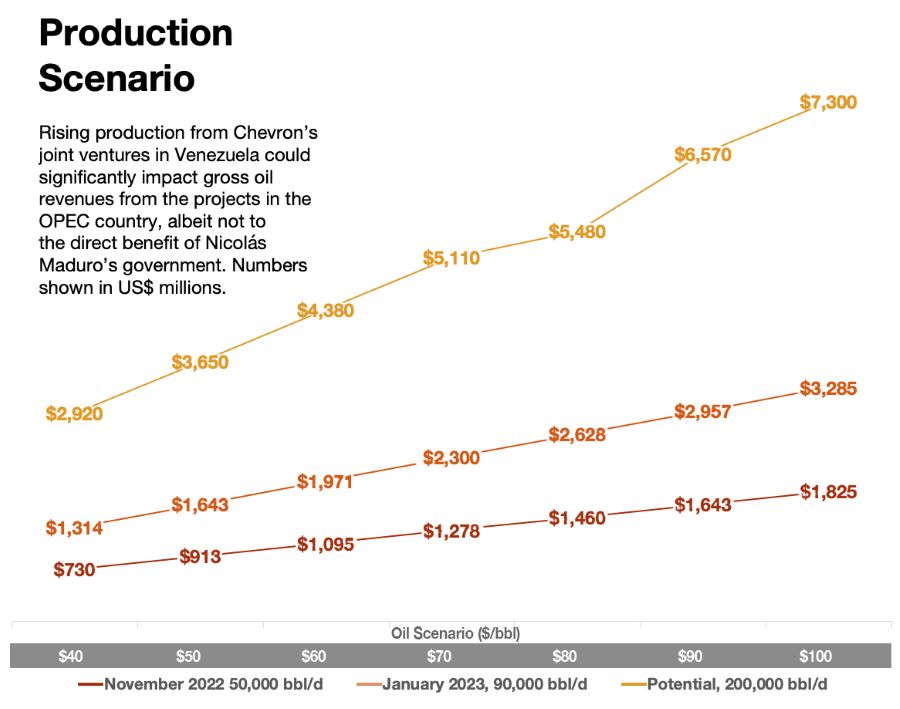
Just how long the U.S. will allow Chevron to operate will depend on Maduro’s actions ahead of elections next year and whether it can deal with the outcome amid an opposition faction that remains widely divided and, hence, less of a threat to defeat the ruling party.
Amid the certain uncertainties, one thing is clear: The U.S. will not likely get the election result it wants next year, according to Datanalisis president Luis Vicente Leon.
“Elections in Venezuela will not be transparent and competitive, considering the desired parameters of liberal democracy,” Leon wrote Feb. 19 in a Twitter post. “But neither were they in most of the experiences of transition from autocracy to democracy in the last century of world political history.”
Recommended Reading
Wayangankar: Golden Era for US Natural Gas Storage – Version 2.0
2024-04-19 - While the current resurgence in gas storage is reminiscent of the 2000s —an era that saw ~400 Bcf of storage capacity additions — the market drivers providing the tailwinds today are drastically different from that cycle.
Ozark Gas Transmission’s Pipeline Supply Access Project in Service
2024-04-18 - Black Bear Transmission’s subsidiary Ozark Gas Transmission placed its supply access project in service on April 8, providing increased gas supply reliability for Ozark shippers.
Kinder Morgan Sees Need for Another Permian NatGas Pipeline
2024-04-18 - Negative prices, tight capacity and upcoming demand are driving natural gas leaders at Kinder Morgan to think about more takeaway capacity.
Scathing Court Ruling Hits Energy Transfer’s Louisiana Legal Disputes
2024-04-17 - A recent Energy Transfer filing with FERC may signal a change in strategy, an analyst says.
Balticconnector Gas Pipeline Will be in Commercial Use Again April 22, Gasgrid Says
2024-04-17 - The Balticconnector subsea gas link between Estonia and Finland was damaged in October along with three telecoms cables.


